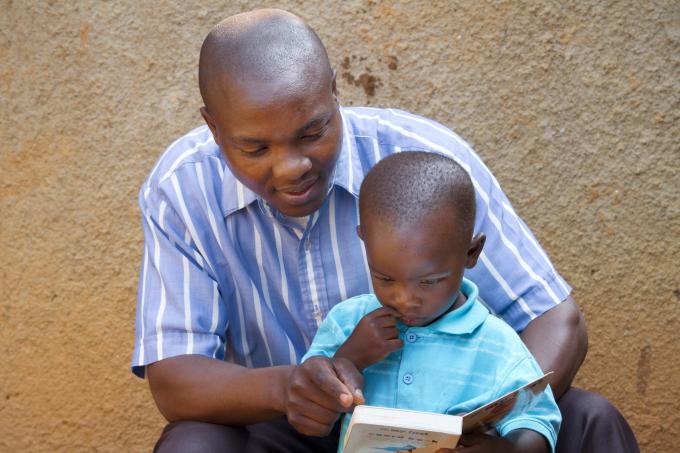Press Release: Rwandan men should be more involved in parenting, says Save the Children
PRESS RELEASE
10.05.2021
Rwandan men should be more involved in parenting, says Save the Children

Rwandan women continue to bear the burden of most aspects of childcare, despite male involvement being essential for early childhood development, according to a new report launched in February 2021 by child-rights agency Save the Children. The new report reveals that despite some awareness raising in Rwanda of the importance of men being more engaged in children’s lives, gender norms which encourage men to engage in paid work while women stay at home continue to prevail.
The agency is calling on Rwandan men to step up and share more of the daily responsibilities of childcare, so women have greater freedom to engage in other aspects of community life, and so children can benefit from engagement with both caregivers.
The report further reveals that other barriers to male engagement in child-rearing include:
- A lack of knowledge amongst both men and women about the potential benefits of father engagement;
- The absence of gender-responsive care practices at health centres which deter the engagement of fathers;
- The reinforcement of existing gender stereotypes through female dominated early childhood service provision; and
- A legislative environment that limits father involvement.
Save the Children is calling on the Rwandan government to support aggressive awareness raising of the benefits of male engagement in parenting across all levels of Rwandan society, and the promotion of positive deviance role models to inspire young men and fathers. The agency is further calling on the Rwandan government to fund incentives for male caregiving especially through family performance contracts. Save the Children is calling on international donors to invest in strong research in order to build an evidence base to provide data on the positive outcomes for children, families and communities when men are more involved in early childhood care.
Maggie Korde, Save the Children’s Country Director in Rwanda, said:
“Many men don’t interact with their children at all, because they think it’s the sole responsibility of the mother. This can have an incredibly detrimental effect on the children’s health and wellbeing and brain development. The first three years of childhood offer the best chance and window to influence brain development because majority of the child’s brain develops by the age of three. “We want to encourage fathers to engage more in their children’s early development, through sharing childcare, reading to their children, playing with their children, and supporting the children’s mothers also to get a break from childcare. All these factors will help build stronger, more resilient children and families.”
NCDA Deputy Director General, said this during the launch of the report:
“I believe that whether a parent is rich or poor, the most important thing should be education for their children, the time or the care that parents give to their children will provide better early childhood development (ECD) outcomes for their future. We are aware of the negative effects on children when the family does not invest in ECD, so, we encourage both male and female caregivers to work together in supporting their children without the barriers of gender norms and stereotypes.”
 Rwanda
Rwanda